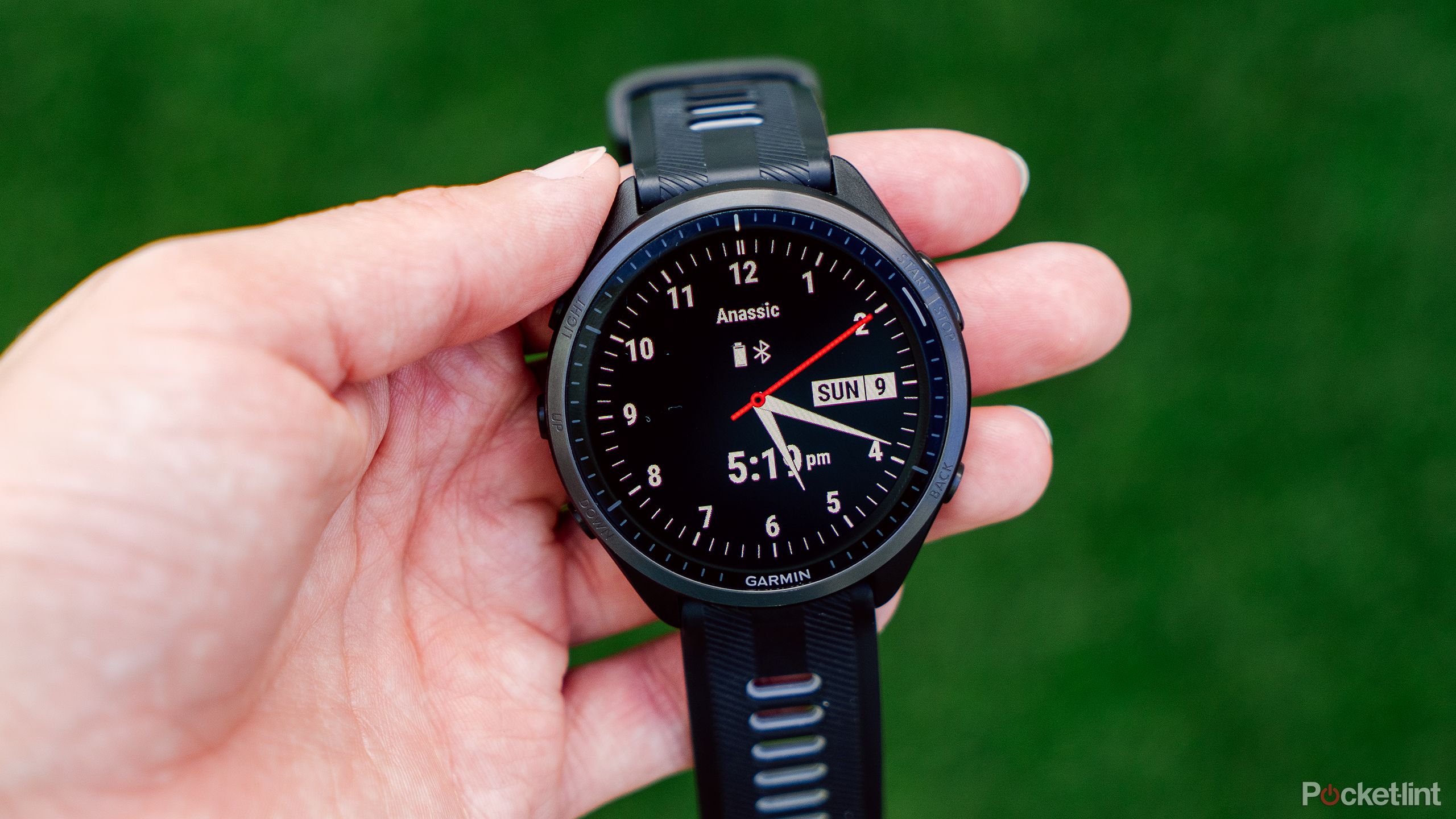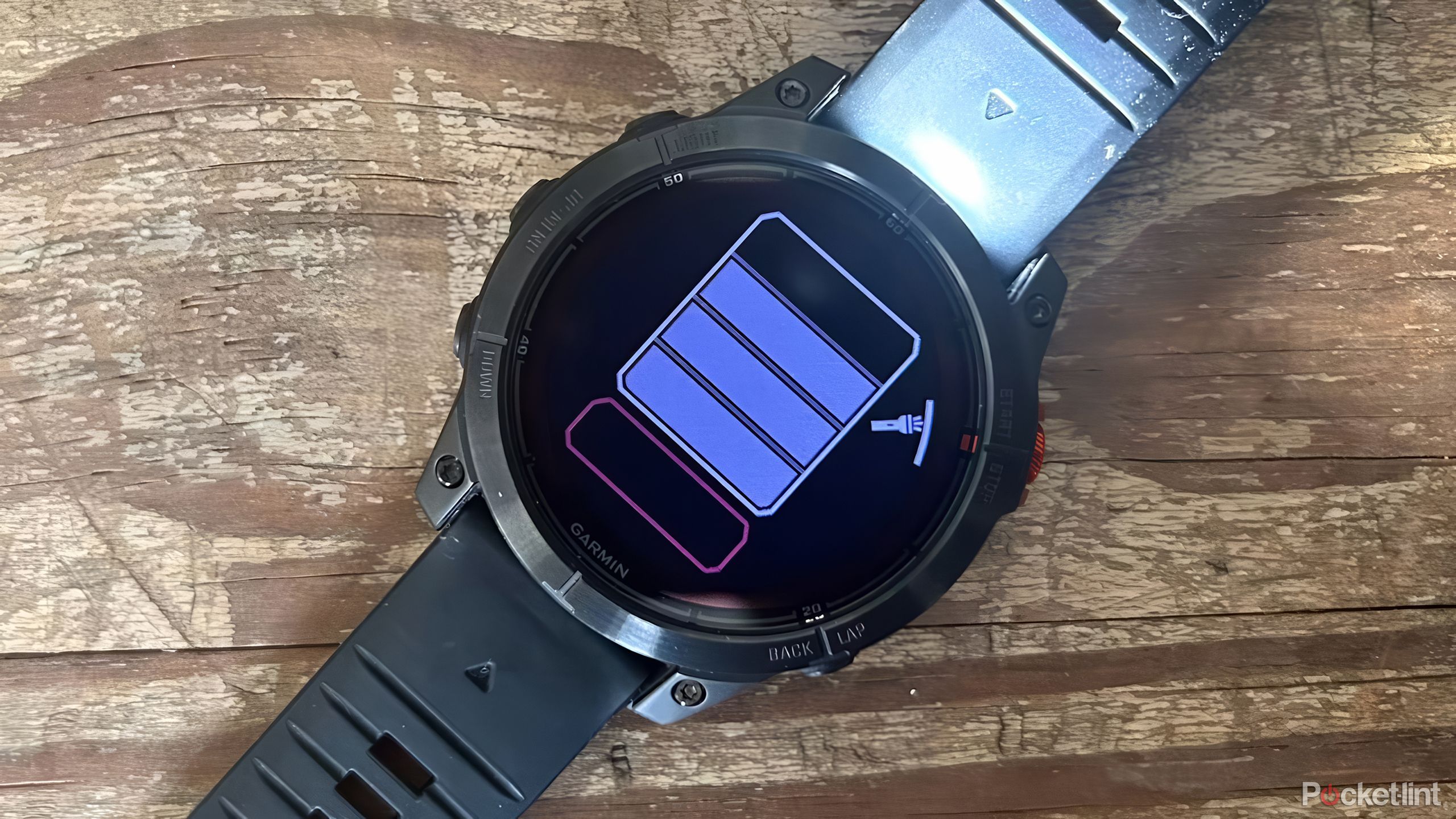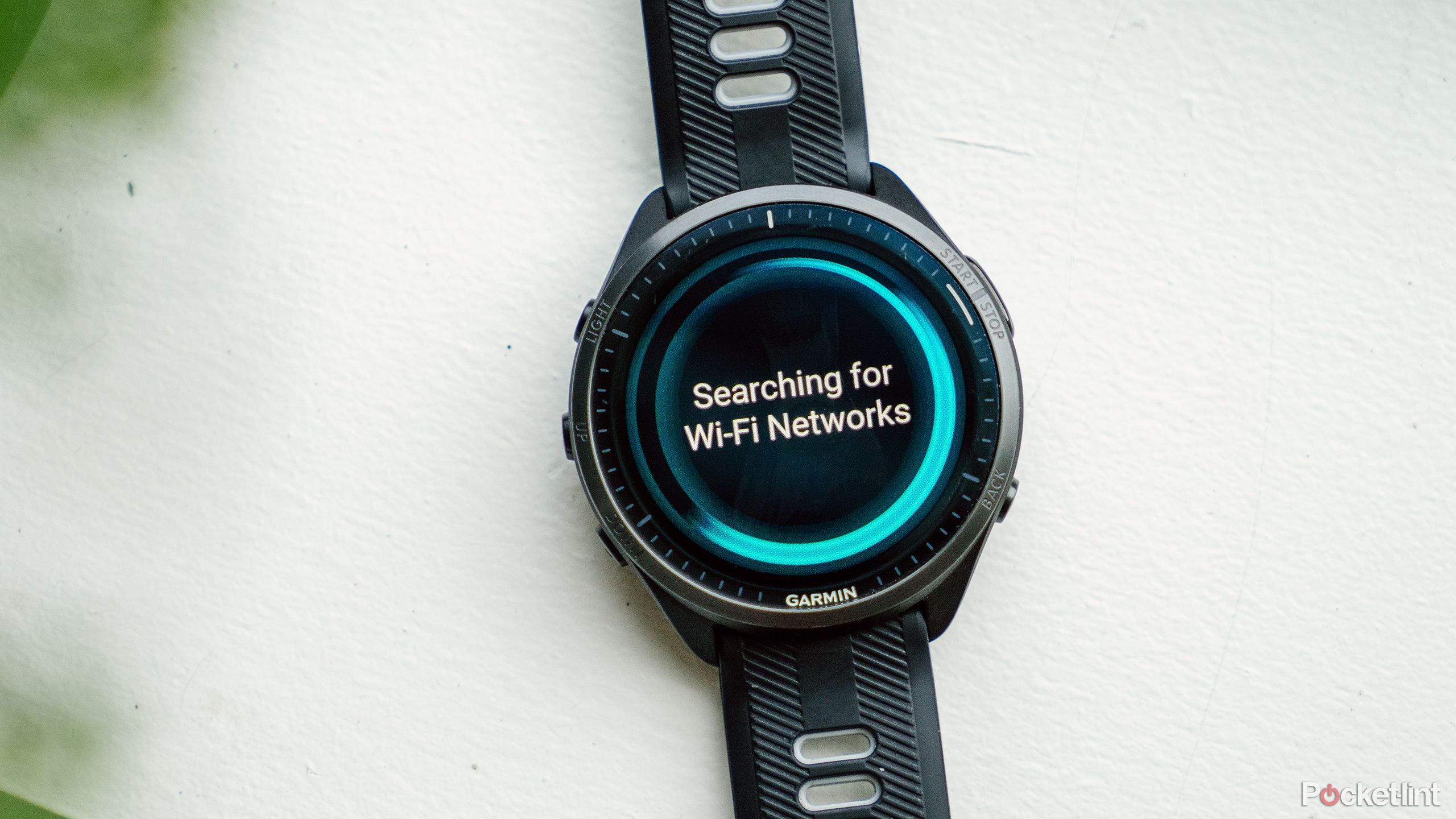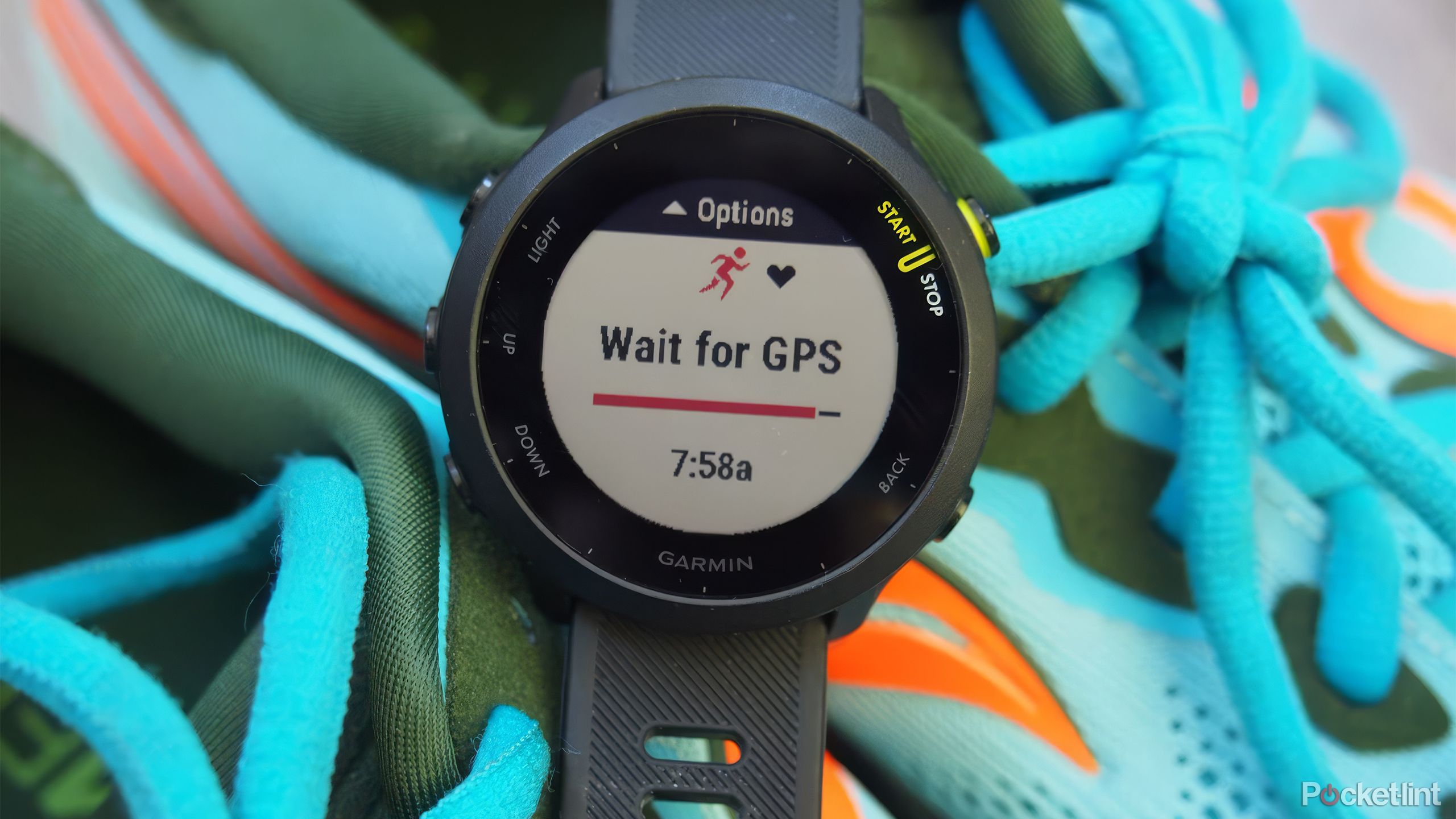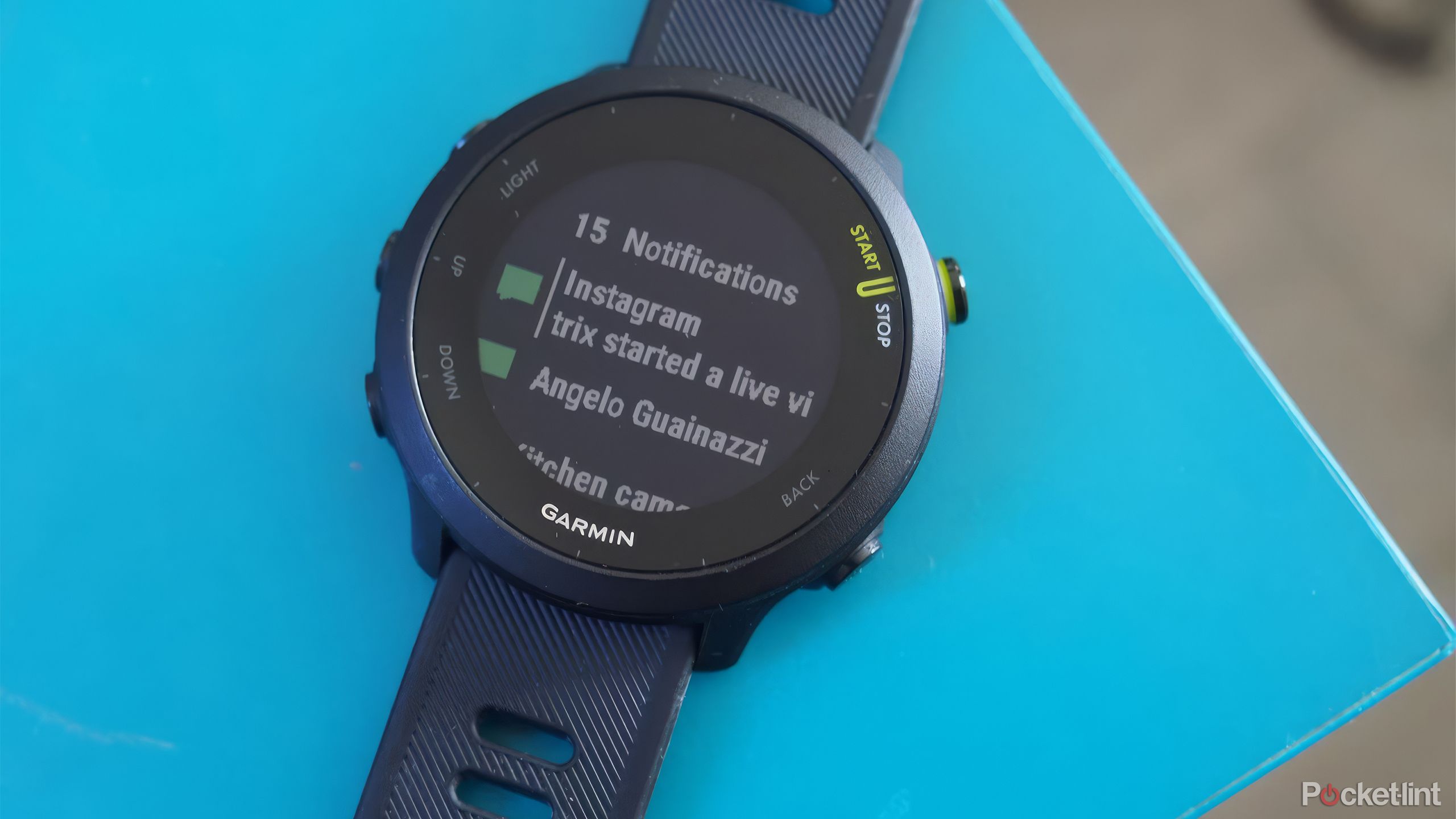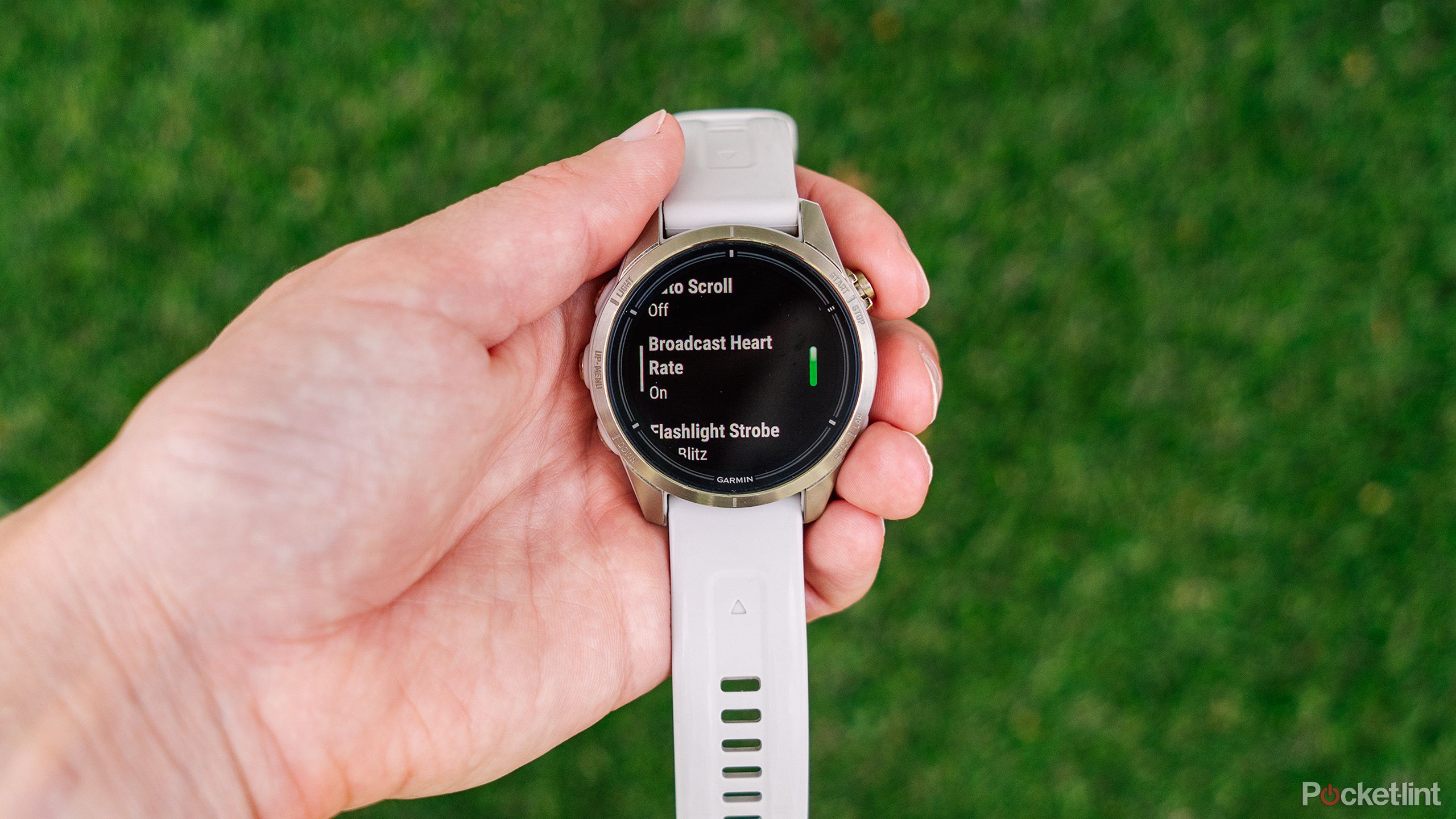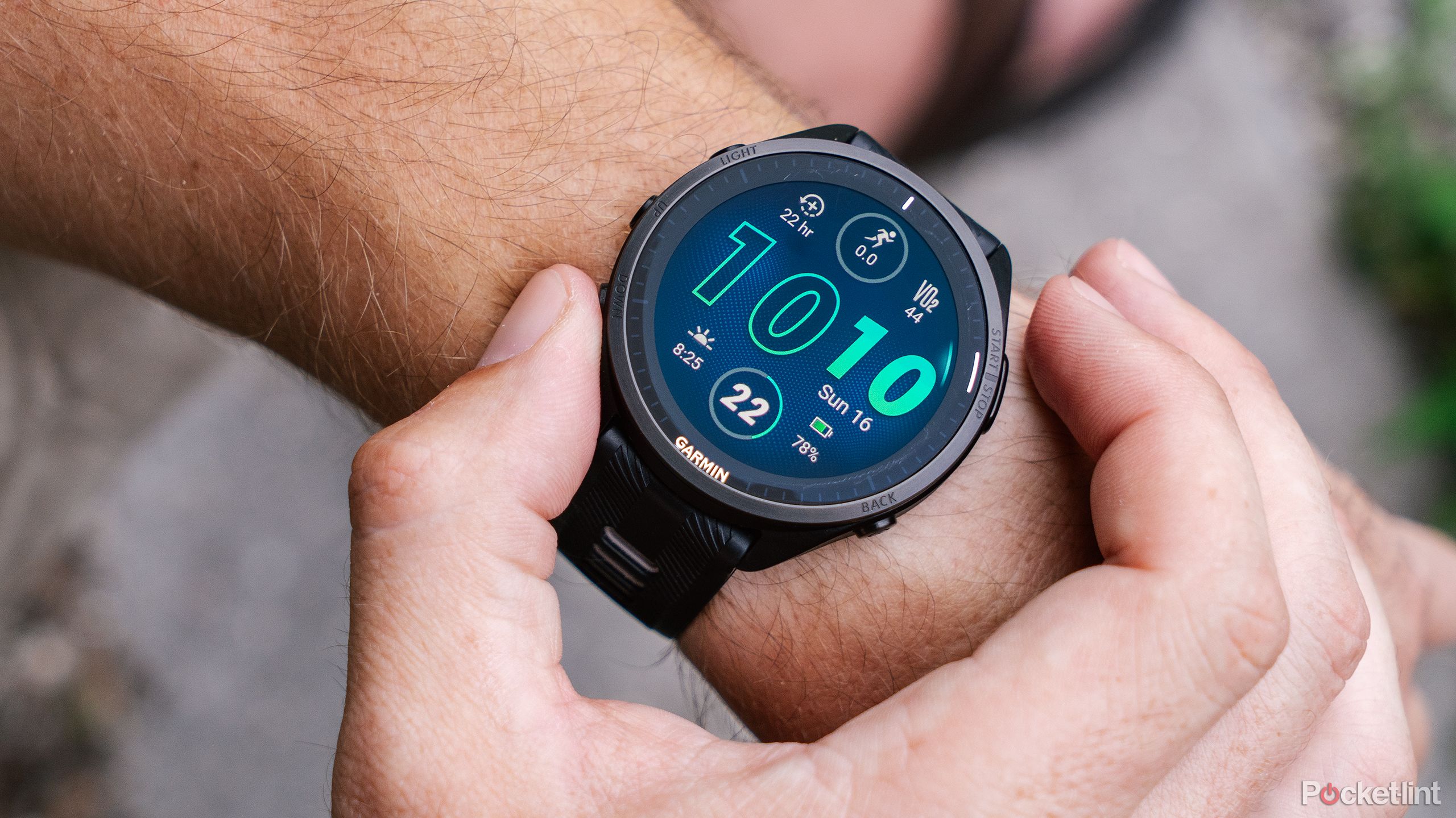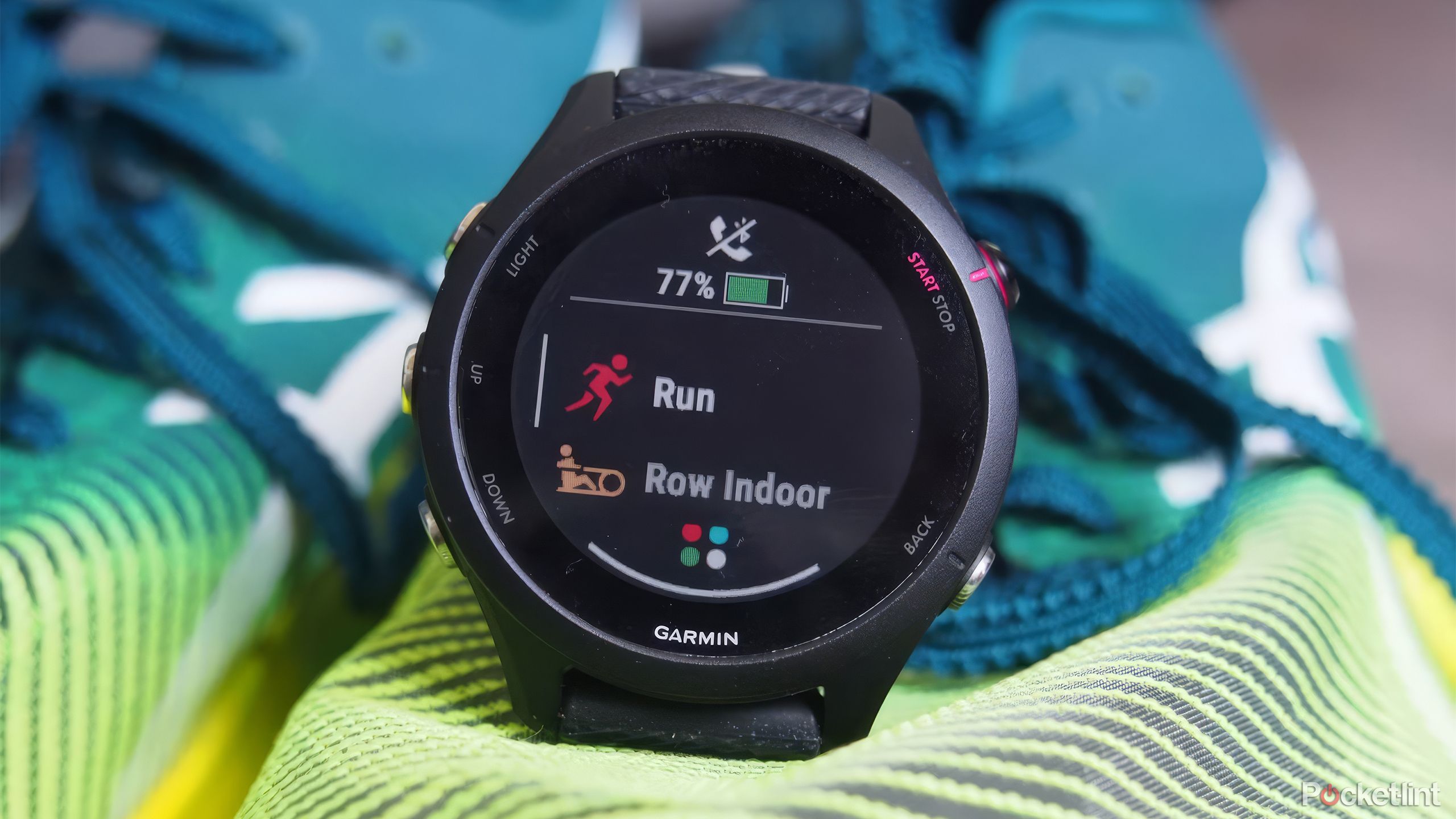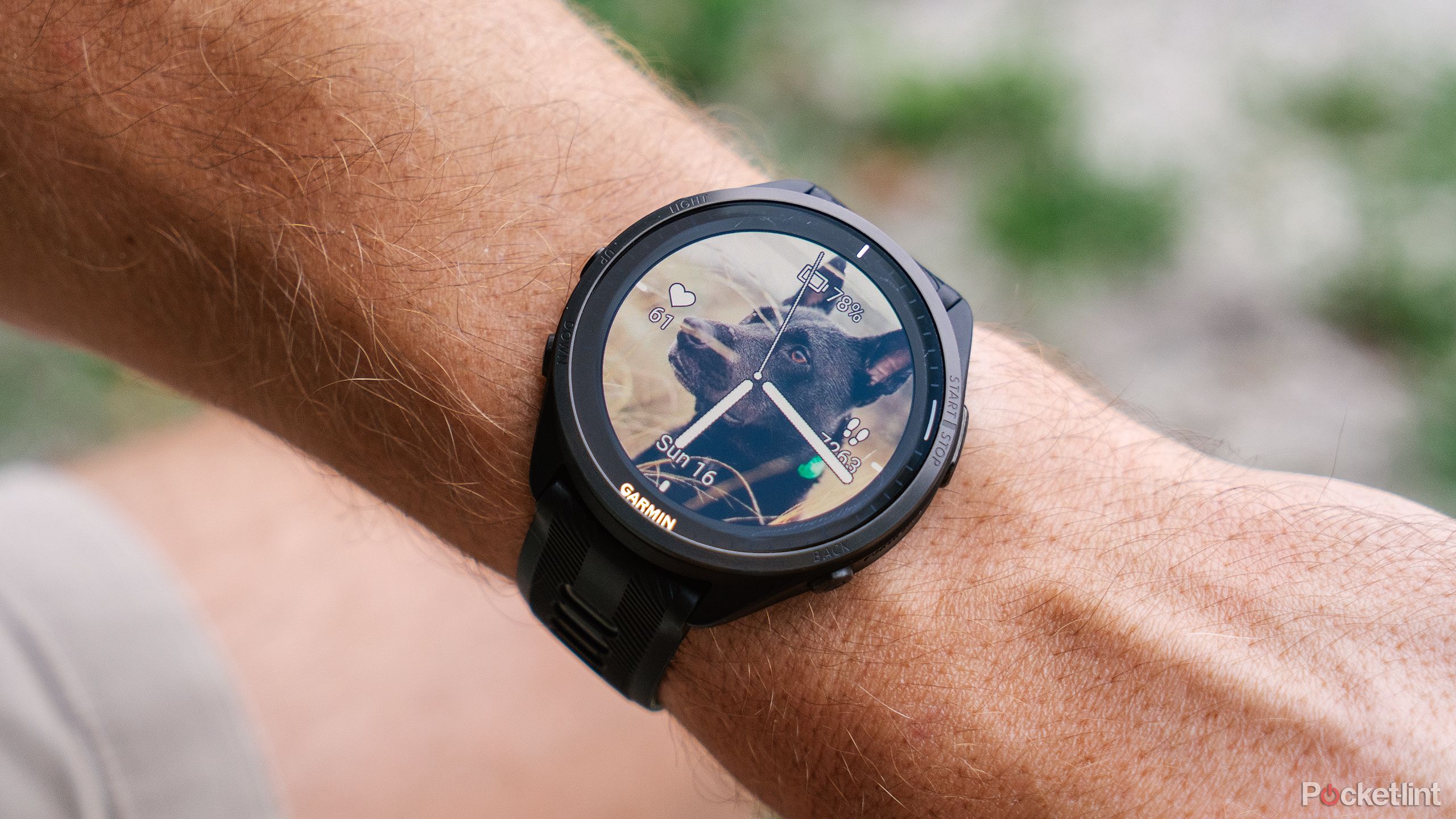Key Takeaways
- Enable Battery Saver Mode on compatible Garmin models for extended battery life.
- Lower screen brightness to conserve battery without sacrificing too much visibility.
- Disable Wi-Fi, LTE, GPS, Bluetooth, Pulse Ox, automatic tracking, and animated faces to save battery.
In a span of just a few years, smartwatches have turned from novelty to a mainstay on the wrists of athletes and casual users alike.
Among the many brands making the best smartwatches around, Garmin is undoubtedly one of the most well-liked. The company offers a wide range of devices, catering to users that need specialized fitness tracking, as well as regular people looking to track their daily activity and health.
However, even with all the amazing features Garmin smartwatches offer, they’re prone to the same shortcoming all wearables suffer from: limited battery life. While regular watches require a battery change once every few years, smartwatches need charging every few days, and that’s the best case scenario. Fortunately, there are a few ways you can significantly increase the battery life of your Garmin watch.
Related
Are Garmin devices still worth your money in 2024?
With so many smartwatches and fitness-focused devices available across the market, is a Garmin watch still a sensible purchase?
1 Enable Battery Saver Mode
Your first stop
Some Garmin watches allow you to turn on Battery Saver Mode. With a single tap, you can significantly extend the battery life of your device. Unfortunately, Battery Saver Mode is not available on all Garmin smartwatches, but if you own a more recent model, you’re probably in luck. The following models include Battery Saver Mode:
- Forerunner 165
- Forerunner 255
- Forerunner 255S
- Forerunner 265
- Forerunner 265S
- Forerunner 945
- Forerunner 955
- Forerunner 955
- Venu 2
- Venu 2S
- Venu 2 Plus
- Venu Sq 2
- Venu 3
- Venu 3S
- Vivoactive 5
Depending on the model, the location of Battery Saver Mode may differ, but in general, navigate to your device’s
Power Management
settings and enable
Battery Saver Mode
.
2 Lower the screen brightness settings
A little can go a long way
Lowering the brightness of your watch’s screen is an easy way to make the battery last longer. Of course, there’s an obvious drawback; it will be more difficult to see what’s on the screen, especially when it’s bright outside. However, getting a few hours more out of your watch can be worth it when battery life is essential.
3 Disable Wi-Fi and LTE
Both can be a major drain
When it comes to phones, Wi-Fi and cellular connectivity don’t tend to be a big drain on battery life. Smartwatches are a different story. Due to their comparatively small batteries, even leaving Wi-Fi on can be a significant drain.
That’s why turning off Wi-Fi and LTE (if it’s available on your model) can be a great idea if you need keep your watch alive for as long as possible.
4 Disable GPS
Some activities don’t need it
Even though having a GPS module built into your smartwatch is an incredible thing, it’s also a feature that can quickly drain your device’s battery. That’s why, unless you absolutely need it, it’s worth turning GPS connectivity off on your Garmin watch.
Of course, if GPS is essential for your next workout, there’s not much you can do about this battery drain.
5 Disable Bluetooth connectivity
You don’t need to see your notifications on every run
I know, it’s hard to beat the convenience of connecting your smartwatch and phone together. You can use the watch to check your notifications, skip songs, and even respond to texts.
However, that connection can also be quite taxing for your smartwatch’s battery. If you really need to maximize its battery life, turning off your watch’s Bluetooth connectivity and disconnecting it from your phone is a great way to eke out a bit more battery life. Best of all, you won’t lose all the data that your watch is tracking; you can simply connect it to your phone afterwards to complete a data sync.
6 Turn off All Day Pulse Ox tracking
It’s useful but expensive
Pulse Ox, which is Garmin’s name for blood oxygen tracking, is one of the most battery-draining features the company offers. Even though having it on all the time has its advantages, if you want to prioritize battery life, it might be better to tweak your device’s setting to go easy on Pulse Ox.
On most Garmin devices, you generally have three Pulse Ox tracking options. The first one is continuous tracing, which, as you can imagine, is battery intensive. You can also turn the feature off in order to maximize battery life. That being said, you’ll still be able to measure SpO2 manually. The middle option is to allow your Garmin watch to measure Pulse Ox only when you’re asleep. It’s a nice middle ground that will allow .
7 Disable Always-On display
Give that screen (and your eyes) a rest
Smartwatches may have a ton of useful features, but they are also timepieces. That’s why an always-on display is such an important part of each device in this category — it allows users to quickly check the time without the need to wake up the whole watch.
That being said, it can also be taxing on the battery to keep the screen active at all times. So, if you absolutely need to prioritize battery life over convenience, turning off the always-on display is a great way of making your smartwatch last longer.
8 Disable automatic activity tracking
Just remember to be mindful
If you’re a dedicated smartwatch user, automatic activity tracking is a handy little feature. It automatically tracks all your walks and runs, helping you save your activities even if you forget to manually start them.
This feature, unfortunately, can take its toll on the battery, as your watch has to actively track your movements at all times. So, in order to save a bit of battery, you could consider turning it off.
9 Switch from an animated watch face to a static one
Sacrifice a bit of cool in the name of battery life
Finally, you might want to sacrifice a bit of your smartwatch bling in the name of its battery life. Even though some Garmin smartwatches allow you to set up an animated watch face, doing so will quickly drain your available battery. Instead, if you want your watch to last longer on a charge, consider changing the watch face to a static one. It might not be as cool, but its impact on battery life is much lower, helping your Garmin conserve energy.
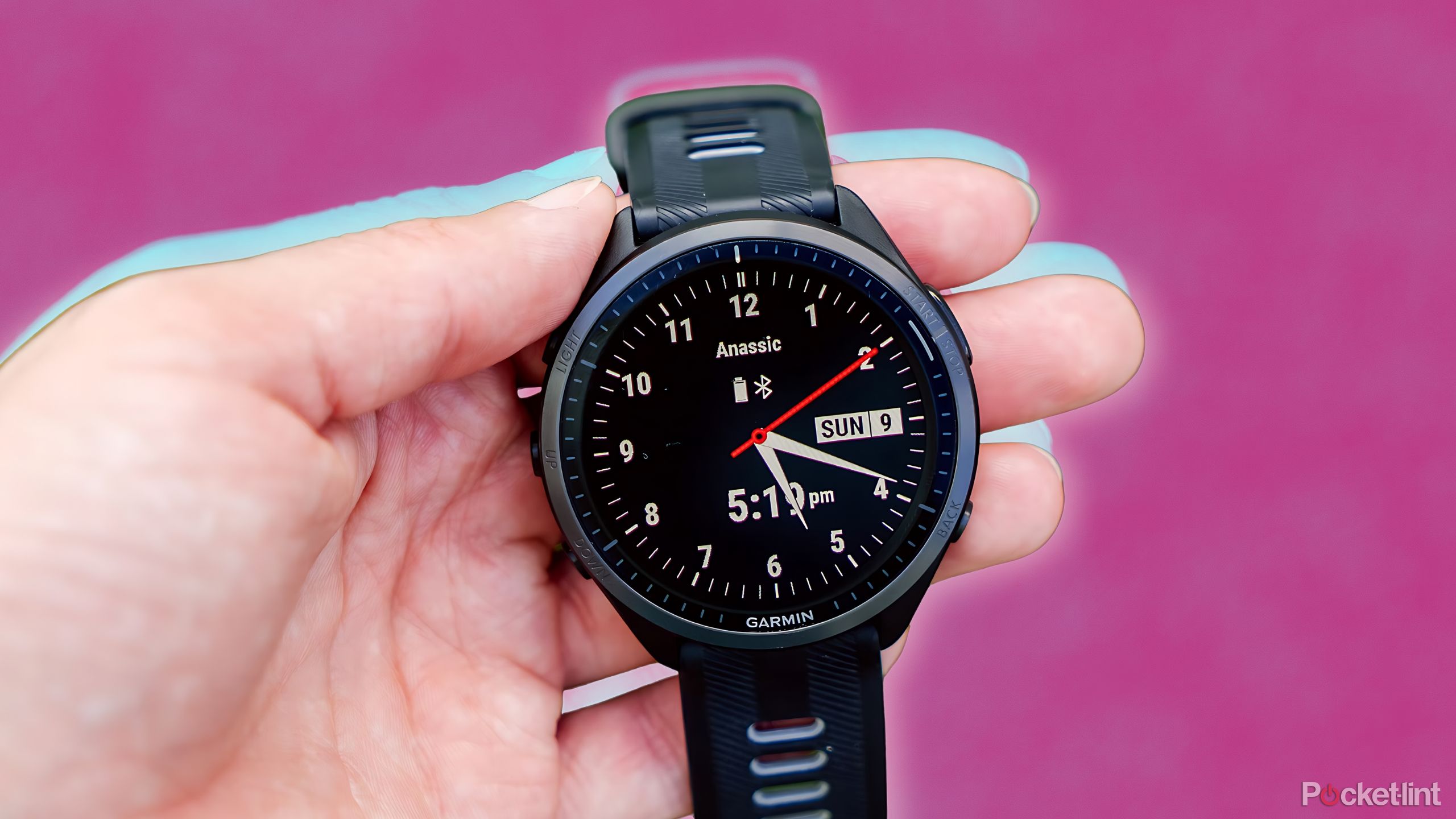
Related
5 watch faces every Garmin owner should try
There’s nothing worse than an overcrowded watch face. Here are 5 Garmin watch faces to fine-tune to show only what you need.
Trending Products

